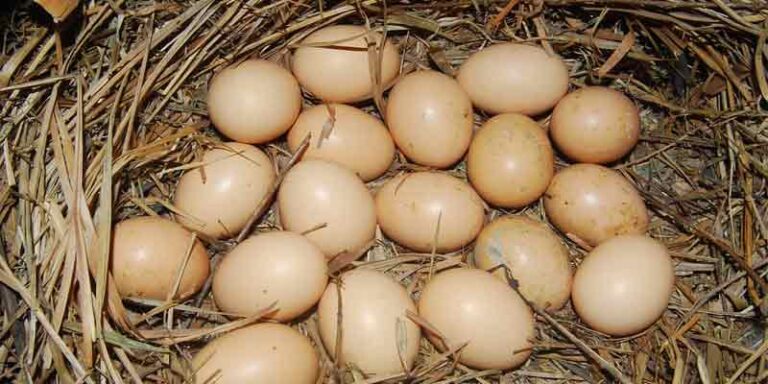Every chicken owners want their chicken to lay large eggs. Sometimes, you may get small or even tiny eggs from your chicken. If this happens, you may wonder why and if there might be a problem with your chicken.
So, why are my chickens laying small eggs? There are many reasons why your chickens may lay small eggs. However, the most common reasons are usually due to breed, genetics, age, nutrition, environment, and stress.
Keep reading to find out why small eggs happen and if there is anything you can do to reverse it.
Reasons Why Chickens Are Laying Small Eggs
The Age of the Chicken
When hens start to lay eggs, they will usually lay small eggs. As they get older, the eggs will become bigger.
The average age of the chicken when they start to lay is about 6 months.
However, the actual age at which they start to lay will vary on their age, the breed, and the environmental condition. Some breeds like Australorps, Leghorns, Sex Links, Golden Comets will usually lay as soon as 16-18 weeks.
Nutrition
Nutrition is one of the most important factors when it comes to the size, quality, and taste of the eggs.
A hen that gets the proper amount of nutrition will likely be healthier. This means the hen will lay larger eggs.
On the other hand, a hen that doesn’t get enough nutrition will likely lay smaller eggs.
When chickens start to lay eggs, they will require extra nutrition, especially protein. To meet their needs, you can start to feed them layer pellets from 16 weeks of age.
Layer pellets are formulated with the right amount of nutrition for laying hens.
In addition to layer pellets, they should be fed foods that are high in protein content.
The more nutrition the hens get, the healthier they are and the larger the eggs will be.
Genetics and Breed
The breed and genetics of the chickens are important when it comes to the size of the eggs they produce.
Some breeds of chickens will lay large to jumbo eggs. If you want large eggs, you should raise the following breeds:
- Barnevelders
- Golden Comets
- Leghorns
- Lohmann Browns
- Minorcas
Then there are smaller breeds of chickens that will lay smaller eggs. One breed that is known for small eggs is Bantam chicken.
Bantam are chickens that are much smaller than regular chickens. However, there are some bantams that are large in size. The “true bantams” are very small in size.
Below are some of the most common breeds of bantam chickens:
- Belgian Bantams
- Brahma Bantams
- Dutch Bantams
- Pekin Bantams
- Japanese Bantams
Environmental Issues and Stress
Stress and other environmental conditions can affect their health. When chickens are in bad health, they will produce smaller eggs or low-quality eggs.
Chickens are in good health when they are allowed to roam freely. The more space they have to forage in and explore, the healthier they will be.
However, this isn’t always possible for everyone. Some chicken owners will have limited space for their chickens to roam.
If space is limited, it’s best to raise chickens according to the amount of space you have. For each chicken, there should be about 4 square feet of space in the coop and run. This is plenty of space for them to move around without being stressed.
Illness or Diseases
If your chickens are suffering from an illness or a disease, it could make them stressed. The stress will cause the hens to produce irregular egg sizes and even shapes.
Chickens that don’t get vaccinated will likely get worms or lice. These parasites can live inside and outside the chicken’s body.
To prevent them from getting parasites, it’s important to get the entire flock checked for them once a month or every 45 days.
Conclusion
As you can see, there are many factors that can contribute to small eggs. If you get the correct breed, they are healthy, and it’s during the summer, you may still not get large eggs. You shouldn’t expect your chickens to lay large eggs all the time.
As long as you feed your chickens the right amount of food, provide them with the right amount of lighting, and create an environment where they won’t be stressed, they should start to lay larger eggs.


